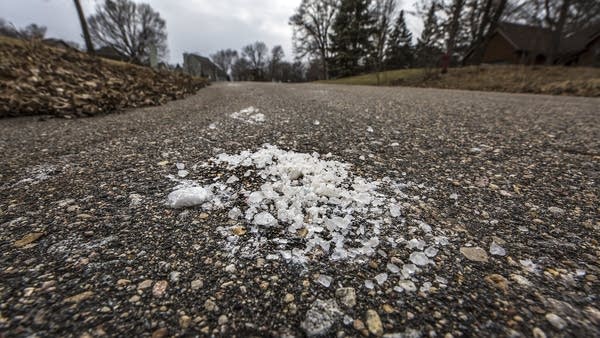Bill could help curb oversalting during Minnesota winters

Salt used to make Minnesota roads and sidewalks safer during winter months often ends up in lakes and streams.
Paul Middlestaedt for MPR News 2017
Go Deeper.
Create an account or log in to save stories.
Like this?
Thanks for liking this story! We have added it to a list of your favorite stories.


